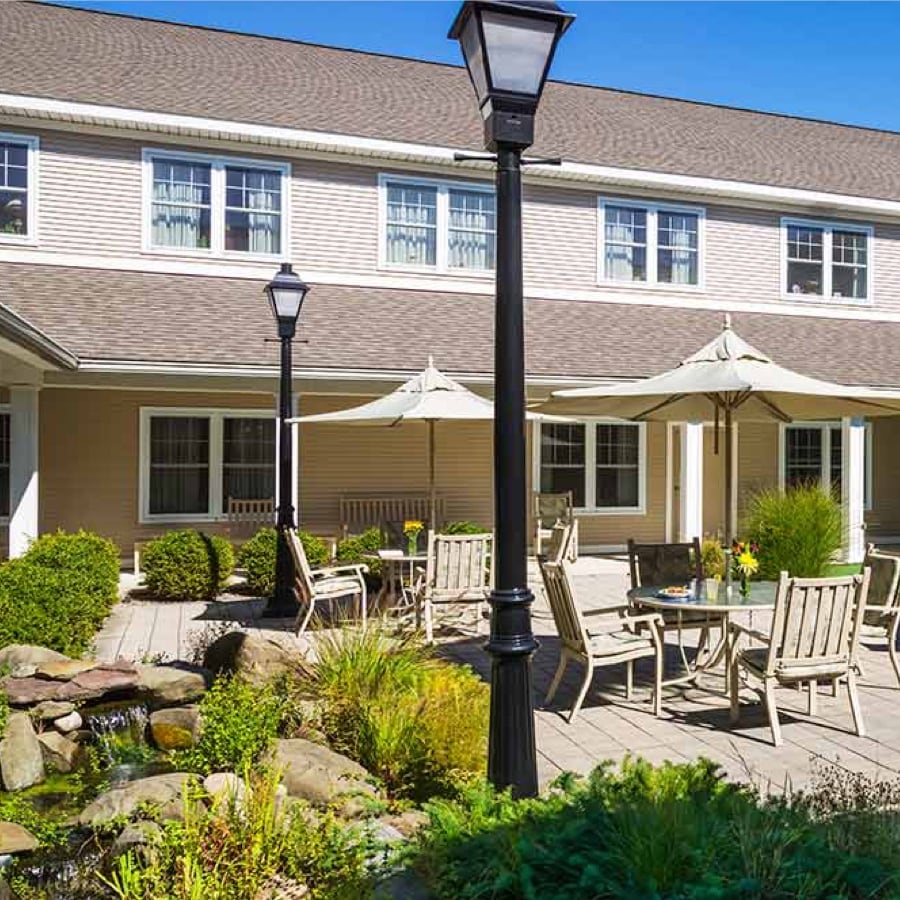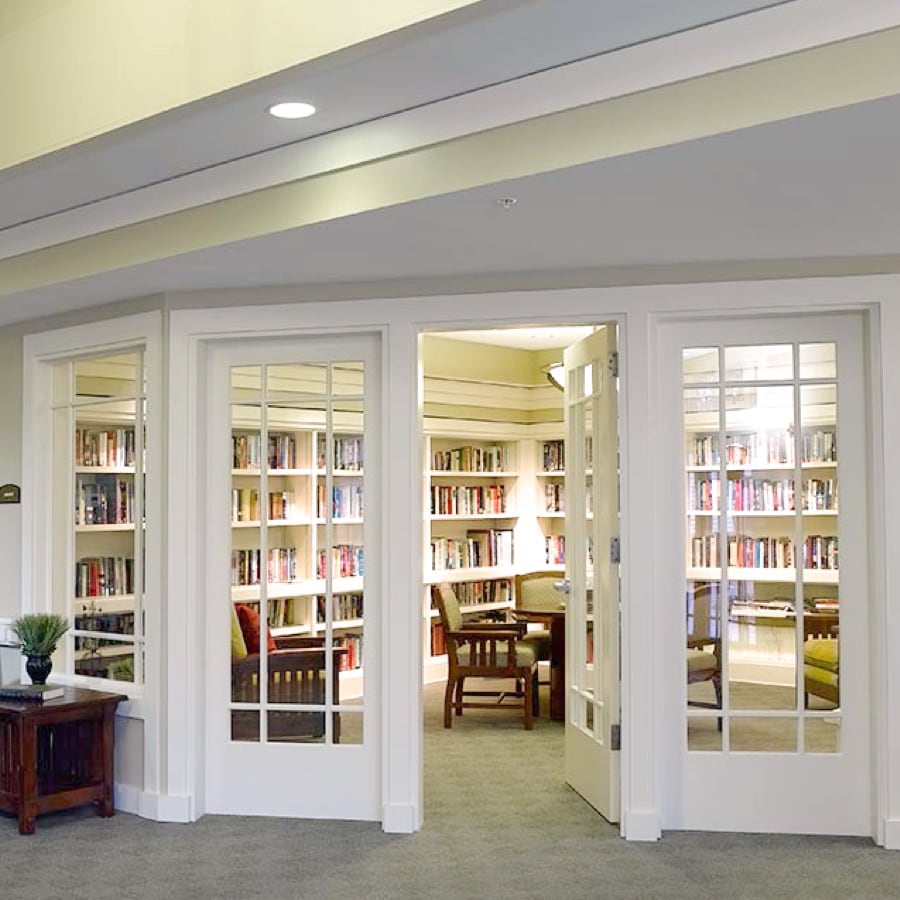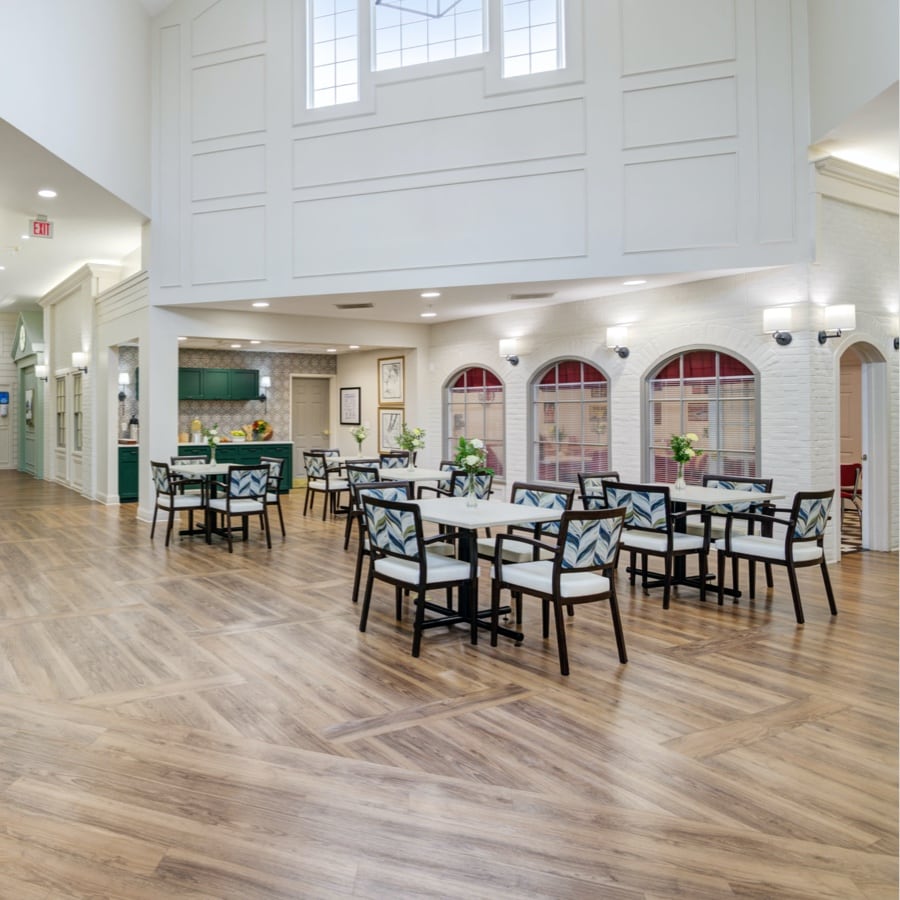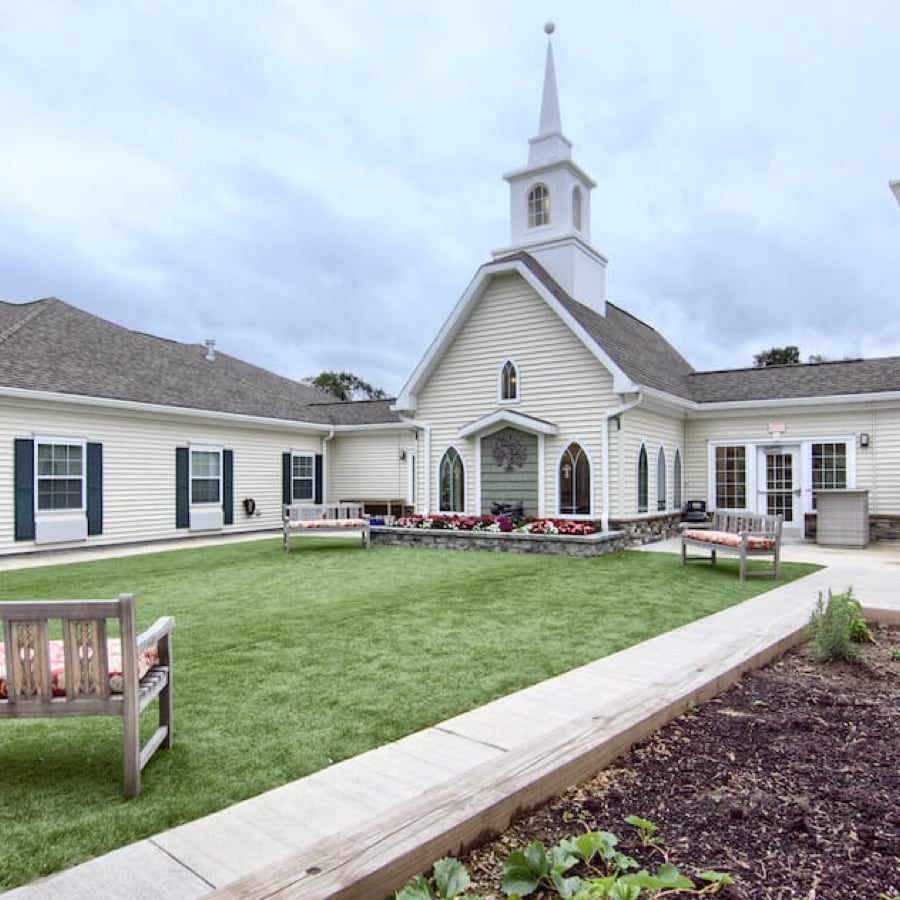Even with all the information out there about senior living communities, it’s easy to be unsure just what care options are available to you and your family. Definitions with lists of features and benefits, are important to know as you are considering your choices.
But sometimes just having a mental picture of what to expect can help you really understand which option best suits your or your loved one’s needs. At Peregrine senior living, we want to be a source of information and guidance as you explore senior living communities.
Senior Living Communities: Lifestyle & Care Options
Independent Living
Sara is really looking forward to her retirement. She’s ready to put down the dust rag and tear up the list of chores. Instead, she’d like a maintenance-free lifestyle where her biggest decision is how she’ll enjoy the day. She could plan to see her grandchildren more often, play bridge every day if she likes and/or join a Zumba class just down the hall. No more driving in bad weather or planning every meal. For Sara, independent living is her ticket to freedom!
- Good choice for someone who can live independently without constant monitoring
- Dedicated to life enrichment with opportunities for entertainment, learning, exercise, socializing, and more
- Residences may include apartments, townhomes, cottages
- Amenities such as a fitness center, multiple dining venues, library, outdoor patios, salon/barber shop, movie theater and more
Assisted Living
Barbara gets along okay in her home, but she could use a helping hand with cooking, housekeeping, or taking her meds in the right order. Living alone gets lonely, too. She’d love to dine with others and share some conversation. Plus, it’s getting harder to get to the store or to appointments on her own and she doesn’t like asking her son to take her. Mainly, she wants to feel relaxed, secure, and cared for—and she wants to have more fun!
- Good choice for someone who needs occasional assistance with activities of daily living (bathing, dressing, medication management) in order to remain as independent as possible
- Comfortable, private, spacious accommodations
- 24-hour supervision
- Daily meals
- Housekeeping and laundry service
- Exercise programs, group activities, special outings, parties, lifelong learning opportunities
Memory Care
Bill is worried about his dad, Frank. Lately Frank has seemed more confused and has wandered away from his house a few times. Bill has also noticed stacks of unopened mail, spoiled food in the refrigerator, and unwashed clothing. He knows if his dad could be around others in the right setting, with personalized attention, his mood would be better and his overall health would improve. Overall, Bill wants Frank to be safe, supported, and respected.
- Specifically addresses the needs of those with Alzheimer’s or other forms of dementia
- Specially trained staff offers compassionate, focused care based on individual needs, preferences and life history
- “Neighborhood” setting is designed to reduce anxiety and prevent wandering
- Medical monitoring
- Three daily meals
- Comfortable private or semi-private rooms
Respite Care
Martha does her best to care for her mother while still working. Facing an upcoming two-week trip, Martha wants to be sure her mother will be safe, cared for, and content. Rather than try to supervise a home care team, Martha would like for her mother to spend the time in a senior living community with a trained staff where she can be safe, eat regular meals, receive daily assistance, and even make new friends.
- Good choice when recovering from a medical procedure, or for a short-term place to stay while a caregiver is away
- Assistance provided with activities of daily living as needed
- Access to community activities, amenities, and services
- Offers an introduction to life in senior living
- Comfortable accommodations, three meals daily
Continuing Care Retirement Communities
Sam and Julie are eager to embrace a carefree retirement with all the perks that senior living communities can provide. They also want reassurance that should either of them require more care, they can receive it without having to move elsewhere. So, in addition to wanting a rewarding lifestyle they can enjoy today, they want a continuum of care—with all the care options they will need.
- Continuum of care (independent living, assisted living, intensive nursing services, in some cases, memory care)
- Remain in the same community even as needs change—different buildings on campus, care for the different care levels.
- Amenities and services mirror those of senior living communities
- Some limitations on long-term care provided (such as Alzheimer’s or Parkinson’s)
- Various residential options are available
Let’s celebrate life together. Contact us today to learn more. Please download the free guide, Just the Facts: A Guide to Assisted Living. We are here to help you!











